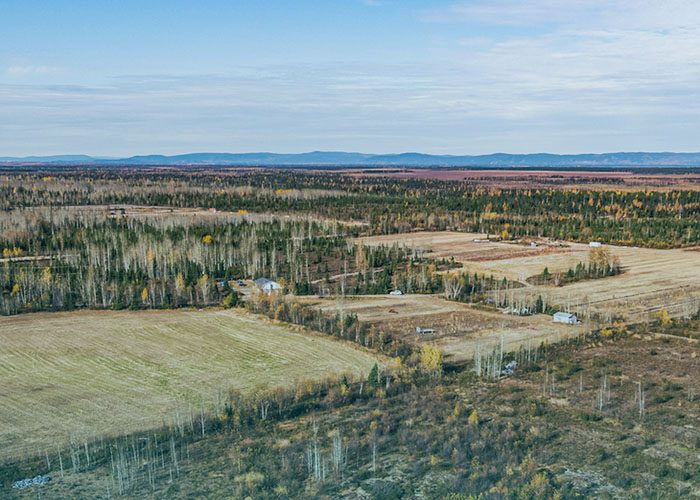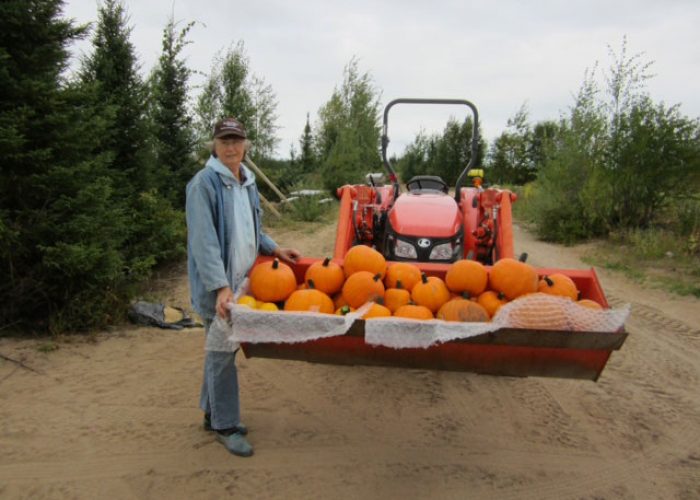PIECES OF PYE
By Heidi Wicks, BA’02, MA’19

REN SIMMS ENJOYS GETTING HIS HANDS DIRTY.
A gardener in his home of Happy Valley-Goose Bay for over 20 years, Mr. Simms grows all his own plants. What he loves the most about gardening is sharing his mouth-watering produce with friends and family – especially his grandchildren.
And that sentiment – self-sufficiency, sharing and thriving together – is the true essence behind the Pye Centre for Northern Boreal Food Systems.
In 2016, Memorial was approached by Frank and Joyce Pye of Grand River Farm, who hoped to transfer the farm lease over to Memorial University in order to continue their legacy of supporting Northern food security and production.

A generous and transformative gift from the estate of alumna Verena Gosse (BA’71, M.Ed.’76, MS’88) allowed the acquisition to become official on June 25, 2019. Thanks to Dr. Gosse, who was an associate professor in Memorial’s Department of Psychology, the steadfast roots of what would become the Pye Centre were planted.
Operated by the Labrador Institute, the centre is growing into a vibrant, community-led hub leading Northern-focused food systems research, education, community connections, production and distribution.
In just two short years, multiple programs and initiatives have sprouted from those roots.
ENDLESS POSSIBILITIES
Jamie Jackman, program coordinator, is grateful to be able to work with a diverse group of community partners who believe in the potential of the Pye Centre and how it can play a key role in addressing food security issues.
“We are in the early stages of developing farm-based wellness programs to connect people to the farm to spend time on the land and learn basic agricultural practices to promote health, wellness and healing,” he explained. “Activities like planting, fertilizing, weeding and harvesting create opportunities to learn transferrable skills and strengthen the understanding of the relationship between food, community and culture.”
He believes the possibilities are endless.

